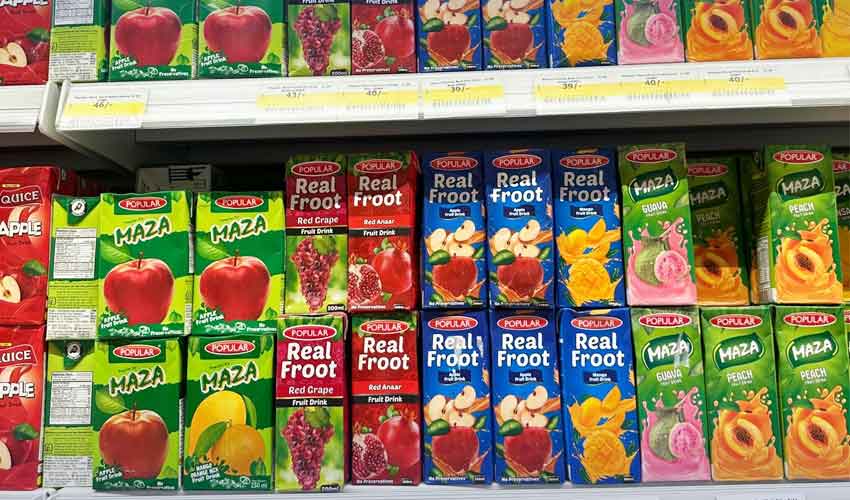The government's imposition of 20% Federal Excise Duty (FED) on beverages, including packaged juices, has backfired, yielding no benefits for the national treasury due to declining sales and volumes, as reported by Business Recorder.
The formal packaged juice industry has suffered a significant blow, with a 40% drop in volumes, thereby depriving consumers of healthier options. This has led to a sharp decline in sales and stunted the industry's growth.
Waheed Ahmed, the patron-in-chief of the All Pakistan Fruit & Vegetable Exporters, Importers and Merchants Association (PFVA), highlighted that the pulp industry's supply chain is struggling due to high taxation and climate change impacts.
“The unstable supply of raw materials, like fruits, is hurting the beverage industry, which has already seen a 40% sales drop over the past two years due to 38% government taxation. This decline is also affecting growers' incomes,” said Ahmed, who also owns Iftekhar Ahmed & Co., a major player in the fruit and vegetable sector, including value-added products like juices.
The fruit-based beverage industry, with a turnover of approximately Rs100 billion and an investment of Rs50 billion, employs over 100,000 people. Some companies have had to lay off workers due to falling sales, which also negatively affects fruit growers and farmers because of reduced pulp procurement.
As a result of the FED and subsequent industry contraction, no new investments were made in 2023-24, with none planned for 2024-25.
Additionally, the growth of the undocumented sector has harmed the formal industry, consumers, and government revenue collection efforts.
The government should aim to support the formal industry by at least reducing the FED rate or abolishing it altogether. It is also crucial to regulate or eliminate the informal industry, which operates without standards. This can be achieved through the coordination of food authorities and law enforcement agencies.
Another solution is to establish a task force or committee with representatives from both the government and the formal juice industry to identify and address illicit manufacturers. The past year has shown that the FED has rendered the formal juice business unviable, which is alarming for economic growth, especially in the rural economy.
Incorporating the informal players into the tax net is essential because economic stability won't be achieved by overburdening those who are already paying taxes. Pakistan should adopt progressive taxation, following the example of countries that provide preferential tax treatment for healthier options with natural fruit content.
Climate change is another significant threat to Pakistan's agriculture, with extreme weather events causing crop damage, yield losses, and food security threats. The country has seen an increase in extreme weather events, including floods, droughts, and heatwaves, which damage crops, disrupt agricultural activities, and lead to yield losses. Given that agriculture contributes 21% to Pakistan's GDP, employs 45% of its population, and accounts for about 60% of exports, climate change poses a severe risk.
Waheed Ahmed emphasized that Pakistan faces a distinct food security risk if the effects of climate change on agriculture are not mitigated. Reports suggest that agricultural production in Pakistan could decline by 30% to 50% if these challenges, especially climate change, remain unaddressed. He noted shortages in onions and tomatoes and a 50% drop in Kinnow exports, alongside significant food price increases due to the disrupted and unstable supply chain.
To address the climate change threat, modern technologies and measures must be adopted. These include promoting climate-resilient agricultural practices like drip irrigation, conservation agriculture, and agroforestry, which help farmers adapt to changing climate conditions and improve productivity. Investment in research and technology, such as developing modified seeds for climate-resilient crops, and policy support through incentives for climate-smart farming and aiding farmers in adopting resilient technologies, is crucial.
In conclusion, the government's taxation policies and the impact of climate change pose significant threats to Pakistan's economy, particularly the rural economy. Immediate action is needed to address these issues, promote the formal industry, and regulate the informal sector to ensure economic stability and food security. The government should focus on reducing or abolishing the FED rate to allow the formal industry to thrive.
Moreover, regulating or eliminating the informal industry, which operates without standards, is also crucial. Adopting modern technologies and measures is essential to combat the threat of climate change.


























